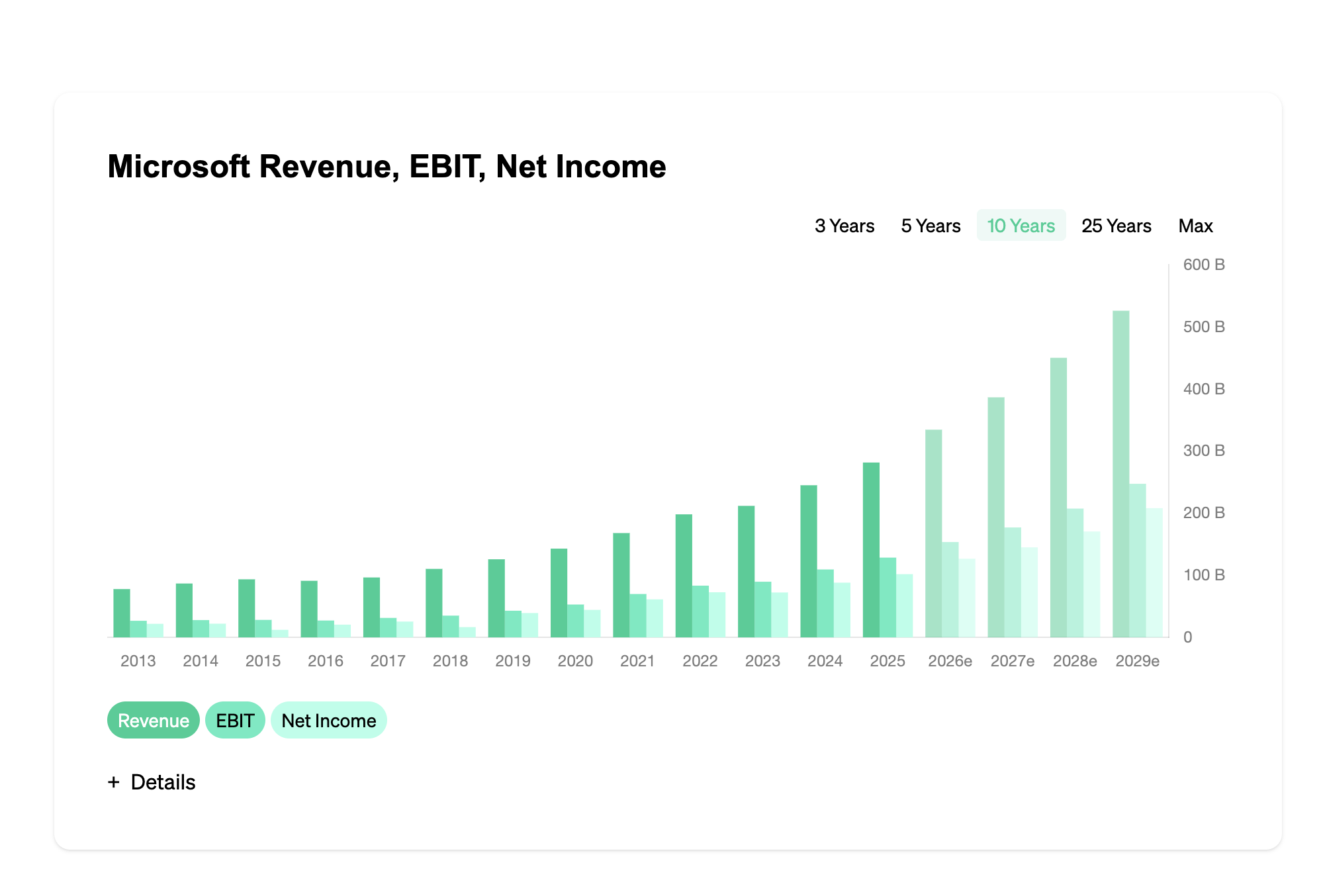Hoheitsbetrieb
Definition und Erklärung
TL;DR – Kurzdefinition
Zu den FAQs →Hoheitsbetrieb: Hoheitsbetrieb is a legal term often used in the context of financial markets, specifically in Germany, to describe a business activity or operation that is under the control or supervision of a public authority. This term refers to activities where a public authority exercises its sovereign powers. In the financial sector, Hoheitsbetrieb occurs when a public authority is directly involved in conducting or regulating certain functions or services related to capital markets. In Germany, the Hoheitsbetrieb concept is of utmost significance due to the country's strong regulatory framework and emphasis on investor protection. Financial activities classified as Hoheitsbetrieb are subject to stricter regulations, stringent compliance requirements, and comprehensive supervision by the relevant public authorities. One prominent example of a Hoheitsbetrieb in the German capital markets is the Deutsche Bundesbank, which acts as the central bank and assumes several crucial functions such as issuing banknotes and coins, managing foreign exchange reserves, and regulating monetary policy. As a Hoheitsbetrieb, the Deutsche Bundesbank plays a vital role in maintaining financial stability and ensuring the smooth functioning of the German economy. Another notable example is the Federal Financial Supervisory Authority (BaFin). BaFin acts as a Hoheitsbetrieb responsible for supervising and regulating banks, insurance companies, financial service providers, and other participants in the German financial markets. It is vested with extensive powers to monitor and enforce compliance with applicable laws, regulations, and standards to protect investors, maintain market integrity, and prevent financial crimes. Understanding the implications of a Hoheitsbetrieb is crucial for investors operating within the German capital markets. It ensures compliance with the specific regulations and requirements applicable to these operations. Investors should be aware that financial activities falling within the scope of Hoheitsbetrieb may be subject to additional restrictions, special licensing procedures, and heightened scrutiny by the relevant public authorities. In conclusion, Hoheitsbetrieb is a key legal concept in the German financial industry that refers to business activities under the control of public authorities. Recognizing and complying with the regulations associated with Hoheitsbetrieb is vital for market participants in order to meet their legal obligations, safeguard investor interests, and maintain the integrity of the German capital markets.
Ausführliche Definition
Häufig gestellte Fragen zu Hoheitsbetrieb
Was bedeutet Hoheitsbetrieb?
Hoheitsbetrieb is a legal term often used in the context of financial markets, specifically in Germany, to describe a business activity or operation that is under the control or supervision of a public authority. This term refers to activities where a public authority exercises its sovereign powers.
Wie wird Hoheitsbetrieb beim Investieren verwendet?
„Hoheitsbetrieb“ hilft dabei, Informationen einzuordnen und Entscheidungen an der Börse besser zu verstehen. Wichtig ist immer der Kontext (Branche, Marktphase, Vergleichswerte).
Woran erkenne ich Hoheitsbetrieb in der Praxis?
Achte darauf, wo der Begriff in Unternehmensberichten, Kennzahlen oder Nachrichten auftaucht. In der Regel wird „Hoheitsbetrieb“ genutzt, um Entwicklungen zu beschreiben oder Größen vergleichbar zu machen.
Welche typischen Fehler gibt es bei Hoheitsbetrieb?
Häufige Fehler sind: falscher Vergleich (Äpfel mit Birnen), isolierte Betrachtung ohne Kontext und das Überinterpretieren einzelner Werte. Nutze „Hoheitsbetrieb“ zusammen mit weiteren Kennzahlen/Infos.
Welche Begriffe sind eng verwandt mit Hoheitsbetrieb?
Ähnliche Begriffe findest du weiter unten unter „Leserfavoriten“ bzw. verwandten Einträgen. Diese helfen, „Hoheitsbetrieb“ besser abzugrenzen und im Gesamtbild zu verstehen.
Priljubljene teme bralcev v Eulerpool borznem leksikonu
Breusch-Pagan-Heteroskedastizitätstest
Der Breusch-Pagan-Heteroskedastizitätstest ist ein statistisches Verfahren, das in der Kapitalmarktforschung weit verbreitet ist, um das Vorhandensein von Heteroskedastizität in einem Datensatz zu überprüfen. Heteroskedastizität bezieht sich auf eine ungleichmäßige Verteilung...
Inzidenz
Die Inzidenz ist ein entscheidendes Instrument zur Bewertung und Überwachung der Ausbreitung von Krankheiten oder Infektionen in einer Bevölkerung. In der Medizin und Epidemiologie wird die Inzidenzrate verwendet, um das...
Fernsehforschung
Fernsehforschung ist ein Begriff, der in der Finanzbranche verwendet wird, um eine spezifische Art der Analyse und Untersuchung des Fernsehmarktes zu beschreiben. Diese Forschungsmethode befasst sich mit der Sammlung und...
Matrixdrucker
Matrixdrucker: Definition und Funktionen eines wichtigen Druckermodells in der Finanzwelt Ein Matrixdrucker ist ein Druckermodell, das in verschiedenen Bereichen der Finanzwelt, einschließlich der Kapitalmärkte, weit verbreitet ist. Mit seinen einzigartigen Funktionen...
Dienstleistungsintensität der Produktion
Dienstleistungsintensität der Produktion beschreibt das Verhältnis der Dienstleistungen zu den physischen Produkten, die in einem Produktionsprozess erzeugt werden. Es ist ein Maß für den Anteil der Dienstleistungen an der Gesamtwertschöpfung...
Schalteraushang
Schalteraushang ist ein Begriff, der im Zusammenhang mit Finanzmärkten verwendet wird. Der Schalteraushang bezieht sich auf die Veröffentlichung und öffentliche Bekanntgabe von relevanten Informationen, wie beispielsweise Ankündigungen, Aktualisierungen oder Handelsbeschränkungen,...
vertikales Marketing
Definition von "Vertikales Marketing": Vertikales Marketing ist eine Marketingstrategie, die darauf abzielt, die Bedürfnisse und Anforderungen einer spezifischen vertikalen Branche oder Zielgruppe zu erfüllen. Im Gegensatz zum horizontalen Marketing, das sich...
Staatshandelsländer
Staatshandelsländer ist ein Begriff, der sich auf Länder bezieht, in denen Staaten als Händler auf den Finanzmärkten auftreten. In solchen Ländern engagieren sich staatliche Akteure aktiv im Handel mit verschiedenen...
Integrated Framework (IF)
Integriertes Rahmenwerk (IF) - Definition und Bedeutung Das Integrierte Rahmenwerk (IF) ist ein zentrales Konzept für die Bewertung und den Einsatz von internen Kontrollsystemen (IKS) in Kapitalmärkten. Es wird von der...
Zitat
Ein Zitat ist ein schriftliches oder mündliches Wiedergeben oder Referenzieren eines Ausspruchs, einer Meinung oder eines Standpunkts einer anderen Person oder Quelle. In den Kapitalmärkten bezieht sich das Zitat oft...









